|
Books Should Be Free Loyal Books Free Public Domain Audiobooks & eBook Downloads |
|
|
Books Should Be Free Loyal Books Free Public Domain Audiobooks & eBook Downloads |
|
Religion |
|---|
|
Book type:
Sort by:
View by:
|
By: Swami Paramananda (1884-1940) | |
|---|---|
 The Upanishads
The Upanishads
| |
By: Sydney Strong (1860-1938) | |
|---|---|
 His Last Week The Story of the Passion and Resurrection of Jesus in the Words of the Four Gospels
His Last Week The Story of the Passion and Resurrection of Jesus in the Words of the Four Gospels
| |
By: Sydney T. Klein (1853-1934) | |
|---|---|
 Science and the Infinite or Through a Window in the Blank Wall
Science and the Infinite or Through a Window in the Blank Wall
| |
By: Sylvester Bliss (1814-1863) | |
|---|---|
 A Brief Commentary on the Apocalypse
A Brief Commentary on the Apocalypse
| |
By: T. A. (Thomas Aiken) Goodwin (1818-1906) | |
|---|---|
 The Heroic Women of Early Indiana Methodism: An Address Delivered Before the Indiana Methodist Historical Society
The Heroic Women of Early Indiana Methodism: An Address Delivered Before the Indiana Methodist Historical Society
| |
By: T. A. (Thomas Alexander) Lacey (1853-1931) | |
|---|---|
 The Acts of Uniformity Their Scope and Effect
The Acts of Uniformity Their Scope and Effect
| |
By: T. B. (T. Bronson) Ray (1868-1934) | |
|---|---|
 Brazilian Sketches
Brazilian Sketches
| |
By: T. J. (Thomas John) Capel (1836-1911) | |
|---|---|
 Confession and Absolution
Confession and Absolution
| |
By: T. T. (Thomas Theodore) Martin (1862-1939) | |
|---|---|
 God's Plan with Men
God's Plan with Men
| |
By: T. W. (Thomas William) Allies (1813-1903) | |
|---|---|
 The Holy See and the Wandering of the Nations, from St. Leo I to St. Gregory I
The Holy See and the Wandering of the Nations, from St. Leo I to St. Gregory I
| |
By: The Gawain Poet | |
|---|---|
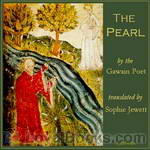 Pearl
Pearl
Written in the 14th century by the Gawain poet, 'Pearl' is an elegiac poem reflecting on the death of a young daughter, pictured as a pearl lost in a garden. It is considered a masterpiece of Middle English verse, incorporating both the older tradition of alliterative poetry as well as rhyme, centered around the development of an intricately structured image. Sophie Jewett's translation from the Northern dialect of the original renders much of the poem's liveliness and beauty accessible to modern readers, whilst encouraging them to pursue their reading further, to read the original itself.This recording is dedicated to the memory of Pearl Jean Shearman, 1914-2012. | |
By: Theodore Graebner (1876-1950) | |
|---|---|
 Evolution An Investigation and a Critique
Evolution An Investigation and a Critique
| |
By: Theodore P. Wilson | |
|---|---|
 True to his Colours The Life that Wears Best
True to his Colours The Life that Wears Best
| |
 Frank Oldfield Lost and Found
Frank Oldfield Lost and Found
| |
 Nearly Lost but Dearly Won
Nearly Lost but Dearly Won
| |
 Amos Huntingdon
Amos Huntingdon
| |
 Working in the Shade Lowly Sowing brings Glorious Reaping
Working in the Shade Lowly Sowing brings Glorious Reaping
| |
By: Théodule Ribot (1839-1916) | |
|---|---|
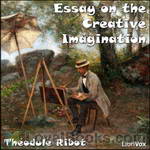 Essay on the Creative Imagination
Essay on the Creative Imagination
“It is quite generally recognized that psychology has remained in the semi-mythological, semi-scholastic period longer than most attempts at scientific formulization. For a long time it has been the “spook science” per se, and the imagination, now analyzed by M. Ribot in such a masterly manner, has been one of the most persistent, apparently real, though very indefinite, of psychological spooks. Whereas people have been accustomed to speak of the imagination as an entity sui generis, as a... | |
By: Theophilus Goldridge Pinches (1856-1934) | |
|---|---|
 The Religion of Babylonia and Assyria
The Religion of Babylonia and Assyria
| |
By: Thomas a Kempis (1380?-1471) | |
|---|---|
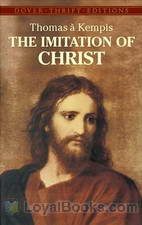 The Imitation of Christ
The Imitation of Christ
The Imitation of Christ is widely considered one of the greatest manuals of devotion in Christianity. The life of Christ is presented as the highest study possible to a mortal, as Jesus’ teachings far excel all the teachings of the saints. The book gives counsel to read the scriptures, statements about the uses of adversity, advice for submission to authority, warnings against temptation and how to resist it, reflections about death and the judgment, meditations upon the oblation of Christ, and admonitions to flee the vanities of the world. A recording of a Dutch translation of this work is also available (Thomas a Kempis was Dutch but wrote in Latin of course). | |
By: Thomas Betson | |
|---|---|
 A Ryght Profytable Treatyse Compendiously Drawen Out Of Many and Dyvers Wrytynges Of Holy Men
A Ryght Profytable Treatyse Compendiously Drawen Out Of Many and Dyvers Wrytynges Of Holy Men
| |
By: Thomas Browne | |
|---|---|
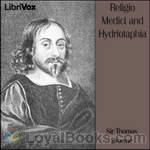 Religio Medici and Hydriotaphia
Religio Medici and Hydriotaphia
Religio Medici (The Religion of a Doctor) sets out Sir Thomas Browne's spiritual testament as well as being an early psychological self-portrait. In its day, the book was a European best-seller. It was published in 1643 by the newly-qualified physician, and its unorthodox views placed it swiftly upon the Papal Index Librorum Prohibitorum in 1645. Although predominantly concerned with Christian faith, the Religio also meanders into digressions upon alchemy, hermetic philosophy, astrology, and physiognomy... | |
By: Thomas Bulfinch (1796-1867) | |
|---|---|
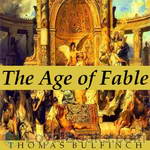 Bulfinch's Mythology: The Age of Fable
Bulfinch's Mythology: The Age of Fable
Bulfinch’s Mythology, first published in 1855, is one of the most popular collections of mythology of all time. It consists of three volumes: The Age of Fable, The Age of Chivalry, and Legends of Charlemagne. This is a recording of the tenth edition of the first volume, The Age of Fable. It contains many Greek and Roman myths, including simplified versions of The Iliad and The Odyssey, as well as a selection of Norse and “eastern” myths. Thomas Bulfinch’s goal was to make the ancient myths accessible to a wide audience, and so it is suitable for children. | |
 Bulfinch's Mythology: the Age of Fable
Bulfinch's Mythology: the Age of Fable
| |
 Bulfinch's Mythology
Bulfinch's Mythology
| |
By: Thomas Carlyle (1795-1881) | |
|---|---|
 The Life of Friedrich Schiller Comprehending an Examination of His Works
The Life of Friedrich Schiller Comprehending an Examination of His Works
| |
By: Thomas Champness (1832-1905) | |
|---|---|
 Broken Bread from an Evangelist's Wallet
Broken Bread from an Evangelist's Wallet
| |
By: Thomas De Witt Talmage (1832-1902) | |
|---|---|
 Abominations of Modern Society
Abominations of Modern Society
| |
By: Thomas H. Burgoyne (1855-1894) | |
|---|---|
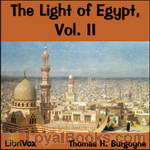 The Light of Egypt, vol II
The Light of Egypt, vol II
"The Light of Egypt" will be found to be an Occult library in itself, a textbook of esoteric knowledge, setting forth the "wisdom Religion" of life, as taught by the Adepts of Hermetic Philosophy. It will richly repay all who are seeking the higher life to carefully study this book, as it contains in a nutshell the wisdom of the ages regarding man and his destiny, here and hereafter. The London and American first edition, also the French edition, Vol. I, met with lively criticism from Blavatsky Theosophists, because it annihilates that agreeable delusion of "Karma" and "Reincarnation" from the minds of all lovers of truth for truth's sake. | |
By: Thomas Henry Howard (1849-1923) | |
|---|---|
 Standards of Life and Service
Standards of Life and Service
| |
By: Thomas Henry Huxley (1825-1895) | |
|---|---|
 Lectures and Essays
Lectures and Essays
| |
By: Thomas Hodson | |
|---|---|
 Old Daniel
Old Daniel
| |
By: Thomas Kelly Cheyne (1841-1915) | |
|---|---|
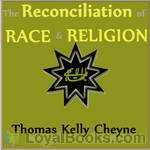 The Reconciliation of Races and Religions
The Reconciliation of Races and Religions
“The primary aim of this work is twofold,” writes Thomas K. Cheyne. “It would fain contribute to the cause of universal peace, and promote the better understanding of the various religions which really are but one religion. The union of religions must necessarily precede the union of races, which at present is so lamentably incomplete…. I have endeavoured to study the various races and religions on their best side, and not to fetter myself to any individual teacher or party, for ‘out of His fullness have all we received... | |
By: Thomas Kempis (1380?-1471) | |
|---|---|
 The Chronicle of the Canons Regular of Mount St. Agnes
The Chronicle of the Canons Regular of Mount St. Agnes
| |
By: Thomas More (1478?-1535) | |
|---|---|
 Dialogue of Comfort Against Tribulation With Modifications To Obsolete Language By Monica Stevens
Dialogue of Comfort Against Tribulation With Modifications To Obsolete Language By Monica Stevens
| |
By: Thomas Taylor (1738-1816) | |
|---|---|
 A Solemn Caution Against the Ten Horns of Calvinism
A Solemn Caution Against the Ten Horns of Calvinism
| |
By: Thomas W. Rolleston (1857-1920) | |
|---|---|
 Myths & Legends of the Celtic Race
Myths & Legends of the Celtic Race
| |
By: Thomas Wentworth Higginson (1823-1911) | |
|---|---|
 The Sympathy of Religions
The Sympathy of Religions
| |
By: Timothy S. Arthur (1809-1885) | |
|---|---|
 All's for the Best
All's for the Best
| |
 Words of Cheer for the Tempted, the Toiling, and the Sorrowing
Words of Cheer for the Tempted, the Toiling, and the Sorrowing
| |
 Who Are Happiest? and Other Stories
Who Are Happiest? and Other Stories
| |
 Ten Nights in a Bar Room
Ten Nights in a Bar Room
| |
By: Tito Vignoli (1828-1914) | |
|---|---|
 Myth and Science An Essay
Myth and Science An Essay
| |
By: Ukawsaw Gronniosaw (c.1705-1775) | |
|---|---|
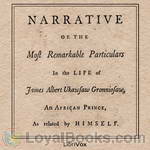 A Narrative of the Most Remarkable Particulars in the Life of James Albert Ukawsaw Gronniosaw
A Narrative of the Most Remarkable Particulars in the Life of James Albert Ukawsaw Gronniosaw
Ukawsaw Gronniosaw, also known as James Albert, (born ca. 1705 - 1775) was a freed slave and autobiographer. His autobiography is considered the first published by an African in Britain. Gronniosaw's autobiography was produced in Kidderminster in the late 1760s. Its full title is A Narrative of the Most remarkable Particulars in the Life of James Albert Ukawsaw Gronniosaw, an African Prince, As related by himself. It was the first Slave narrative in the English language. Published in Bath in 1772, it gives a vivid account of Gronniosaw's life, from his capture in Africa through slavery to a life of poverty in Colchester and Kidderminster... | |
By: Unknown | |
|---|---|
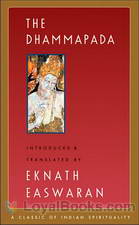 The Dhammapada
The Dhammapada
The Dhammapada is is a Buddhist scripture, containing 423 verses in 26 categories. According to tradition, these are verses spoken by the Buddha on various occasions, most of which deal with ethics. It is is considered one of the most important pieces of Theravada literature. Despite this, the Dhammapada is read by many Mahayana Buddhists and remains a very popular text across all schools of Buddhism. – Excerpted from Wikipedia | |
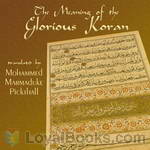 The Meaning of the Glorious Koran
The Meaning of the Glorious Koran
The Koran (Qur’an) is regarded by Muslims as the word of God (Allah) as revealed to the prophet Muhammad. It is divided into 114 chapters (surahs), arranged roughly by length. This version, The Meaning of the Glorious Koran, is a widely used English translation of the Koran by a Muslim Englishman. Many Muslims, however, including Pickthall, believe that true translations of the Koran from the original Arabic are impossible, and see translations into other languages only as useful interpretations. | |
 The First Book of Adam and Eve
The First Book of Adam and Eve
The Conflict of Adam and Eve with Satan is a Christian pseudepigraphical work found in Ge’ez, translated from an Arabic original and thought to date from the 5th or 6th century AD. It was first translated from the Ethiopic version into German by August Dillmann. It was first translated into English by S. C. Malan from the German of Ernest Trumpp. The first half of Malan’s translation is included as the “First Book of Adam and Eve” and the “Second Book of Adam and Eve” in The Lost Books of the Bible and the Forgotten Books of Eden... | |
 Everyman
Everyman
The Somonyng of Everyman (The Summoning of Everyman), usually referred to simply as Everyman, is a late 15th-century English morality play. Like John Bunyan's novel Pilgrim's Progress, Everyman examines the question of Christian salvation by use of allegorical characters, and what Man must do to attain it. The premise is that the good and evil deeds of one's life will be tallied by God after death, as in a ledger book. The play is the allegorical accounting of the life of Everyman, who represents all mankind... | |
 New Etext of Bible [King James Version]
New Etext of Bible [King James Version]
| |
 Wisdom of the East Buddhist Psalms translated from the Japanese of Shinran Shonin
Wisdom of the East Buddhist Psalms translated from the Japanese of Shinran Shonin
| |
 The Kitáb-i-Íqán
The Kitáb-i-Íqán
| |
 The Kitáb-i-Aqdas
The Kitáb-i-Aqdas
| |
 A Critical Exposition of the Popular 'Jihád' Showing that all the Wars of Mohammad Were Defensive; and that Aggressive War, or Compulsory Conversion, is not Allowed in The Koran - 1885
A Critical Exposition of the Popular 'Jihád' Showing that all the Wars of Mohammad Were Defensive; and that Aggressive War, or Compulsory Conversion, is not Allowed in The Koran - 1885
| |
 Codex Junius 11
Codex Junius 11
| |
 Prayers and Meditations
Prayers and Meditations
| |
 The Hidden Words of Bahá'u'lláh
The Hidden Words of Bahá'u'lláh
| |
 Some Answered Questions
Some Answered Questions
| |
 The Seven Valleys and the Four Valleys
The Seven Valleys and the Four Valleys
| |
 Gems of Divine Mysteries
Gems of Divine Mysteries
| |
 Paris Talks
Paris Talks
| |
 Hebrew Heroes A Tale Founded on Jewish History
Hebrew Heroes A Tale Founded on Jewish History
| |
 Tablets of Bahá’u’lláh Revealed after the Kitab-i-Aqdas
Tablets of Bahá’u’lláh Revealed after the Kitab-i-Aqdas
| |
 The Secret of Divine Civilization
The Secret of Divine Civilization
| |
 Epistle to the Son of the Wolf
Epistle to the Son of the Wolf
| |
 Gleanings from the Writings of Bahá'u'lláh
Gleanings from the Writings of Bahá'u'lláh
| |
 The Promulgation of Universal Peace
The Promulgation of Universal Peace
| |
 `Abdu'l-Bahá in London
`Abdu'l-Bahá in London
| |
 Selections from the Writings of `Abdu'l-Bahá
Selections from the Writings of `Abdu'l-Bahá
| |
 Tablets of Abdul-Baha Abbas
Tablets of Abdul-Baha Abbas
| |
 Tablets of the Divine Plan
Tablets of the Divine Plan
| |
 The Will And Testament of ‘Abdu’l-Bahá
The Will And Testament of ‘Abdu’l-Bahá
| |
 `Abdu'l-Bahá's Tablet to Dr. Forel
`Abdu'l-Bahá's Tablet to Dr. Forel
| |
 The Proclamation of Bahá'u'lláh
The Proclamation of Bahá'u'lláh
| |
 The Summons of the Lord of Hosts
The Summons of the Lord of Hosts
| |
 Memoir of Old Elizabeth, A Coloured Woman
Memoir of Old Elizabeth, A Coloured Woman
| |
 Memorials of the Faithful
Memorials of the Faithful
| |
 Bahá'í World Faith
Bahá'í World Faith
| |
 A Traveler's Narrative Written to Illustrate the Episode of the Báb
A Traveler's Narrative Written to Illustrate the Episode of the Báb
| |
 The A, B, C. With the Church of England Catechism
The A, B, C. With the Church of England Catechism
| |
 Foundations of World Unity
Foundations of World Unity
| |
 Amy Harrison or Heavenly Seed and Heavenly Dew
Amy Harrison or Heavenly Seed and Heavenly Dew
| |
By: Upton Sinclair (1878-1968) | |
|---|---|
 The Profits of Religion
The Profits of Religion
The Profits of Religion: An Essay in Economic Interpretation is a non-fiction book by the American novelist and muckraking journalist Upton Sinclair, first published in 1917. It is a snapshot of the religious movements in the U.S. before its entry into World War I. In this book, Sinclair attacks institutionalized religion as a "source of income to parasites, and the natural ally of every form of oppression and exploitation." | |
 They Call Me Carpenter
They Call Me Carpenter
The story takes place in the fictional city of Western City circa 1920. It begins with a man named Billy who is attacked by a mob of ex-servicemen outside a theater after watching a German film. Billy stumbles into a church to escape the mob and is visited by Carpenter, that is Jesus, who walks out of the stained glass window of the church. Carpenter is shocked and appalled by his observations of greed, selfishness, lust, sorrow, and the ultimate division between rich and poor. The story then roughly follows the ministry of Jesus. | |
By: Valmiki | |
|---|---|
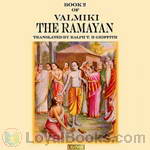 The Ramayana Book 2
The Ramayana Book 2
The Ramayana is an ancient Sanskrit epic. It is attributed to the Hindu sage Valmiki and forms an important part of the Hindu canon (smṛti). The Ramayana is one of the two great epics of India, the other being Mahabharata. It is the story of Rama, who emabrks on an epic journey followed by the fight with Ravana, the demon king who abducted Rama's wife, Sita. The epic depicts the duties of relationships, portraying ideal characters like the ideal servant, the ideal brother, the ideal wife and the ideal king. (Introduction by Om123) | |
By: W. D. (William Dool) Killen (1806-1902) | |
|---|---|
 The Ancient Church Its History, Doctrine, Worship, and Constitution
The Ancient Church Its History, Doctrine, Worship, and Constitution
| |
By: W. H. Griffith (William Henry Griffith) Thomas (1861-1924) | |
|---|---|
 The Prayers of St. Paul
The Prayers of St. Paul
| |
By: W. J. (William James) Dawson (1854-1928) | |
|---|---|
 The Empire of Love
The Empire of Love
| |
By: W. K. Tweedie (1803-1863) | |
|---|---|
 Joseph and his Brethren
Joseph and his Brethren
"The story of Joseph is at once so simple that childhood is arrested and rivetted by it, and so profound that sages may deepen their wisdom by meditating on the truths which it embodies. An attempt is here made to point out some of the more important lessons which the narrative teaches,—to manifest the wisdom and the watchfulness of Providence,—and show how God on high exercises his prerogative of educing good from what we are often tempted to regard as only and hopelessly evil. While man displays... | |
By: W. M. Flinders Petrie (1853-1942) | |
|---|---|
 Religion of Ancient Egypt
Religion of Ancient Egypt
William Matthew Flinders Petrie – the father of Egyptian Archaeology – developed and applied statistical analysis to pottery from prehistoric sites and by this established seriation as a relative dating method as a major contribution to Egyptian Archaeology. In this scientific paper he describes special varieties of the conception of the supernatural in ancient Egypt. The source text also includes a list of "principal works on Egyptian religion" and a list of works "on religions ancient and modern". | |